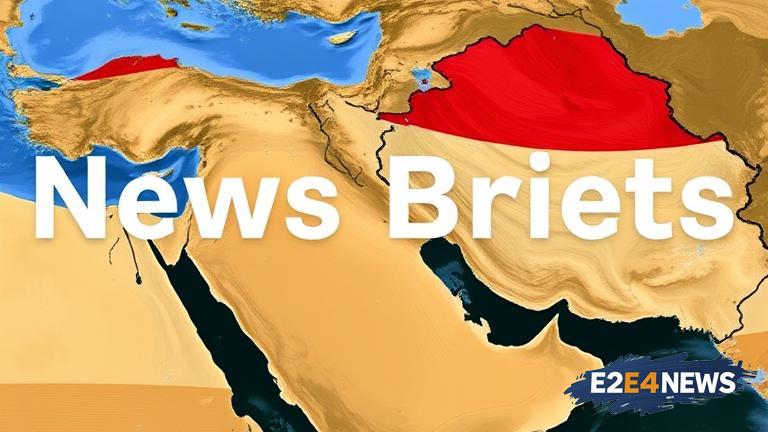The year 2009 was marked by significant events in the Middle East, with various news briefs highlighting the region’s complex political landscape. In January 2009, the Israeli-Palestinian conflict continued to escalate, with Israel launching a military operation in the Gaza Strip. The operation, which lasted for three weeks, resulted in the deaths of over 1,300 Palestinians and 13 Israelis. The international community condemned the violence, with many countries calling for a ceasefire. In response to the crisis, the Arab League held an emergency meeting to discuss the situation and potential solutions. Meanwhile, in Iraq, the US military was preparing to withdraw its troops, with the Iraqi government taking over security responsibilities. The country was also preparing for provincial elections, which were seen as a crucial step towards stability. In Egypt, the government was facing criticism for its handling of the economic crisis, with many Egyptians struggling to make ends meet. The country’s opposition movement was also gaining momentum, with activists calling for reforms and greater freedoms. In Lebanon, the government was working to rebuild the country’s infrastructure, which had been damaged during the 2006 war with Israel. The country was also preparing for parliamentary elections, which were expected to be highly contested. In Syria, the government was facing international pressure to improve its human rights record, with many critics accusing the regime of suppressing dissent. The country was also working to improve its relations with the US, with diplomatic efforts underway to normalize ties. In Jordan, the government was focusing on economic development, with a series of initiatives aimed at attracting foreign investment. The country was also working to improve its education system, with a new curriculum being introduced in schools. In the United Arab Emirates, the government was investing heavily in infrastructure development, with a series of mega-projects underway. The country was also becoming a major hub for business and finance, with many international companies setting up operations there. In Saudi Arabia, the government was working to diversify its economy, with a series of initiatives aimed at reducing the country’s dependence on oil exports. The country was also facing criticism for its human rights record, with many activists calling for reforms. In Yemen, the government was facing a growing insurgency, with al-Qaeda militants launching a series of attacks against government targets. The country was also struggling to cope with a severe economic crisis, with many Yemenis living in poverty. In Turkey, the government was working to improve its relations with the EU, with diplomatic efforts underway to secure membership. The country was also facing criticism for its handling of the Kurdish issue, with many activists calling for greater rights and freedoms. Overall, 2009 was a complex and challenging year for the Middle East, with many countries facing significant political, economic, and social challenges. Despite these challenges, there were also many positive developments, with many countries making progress towards stability and prosperity. As the region looks to the future, it is clear that there will be many opportunities and challenges ahead, and it will be important for countries to work together to address common issues and promote peace and stability.





